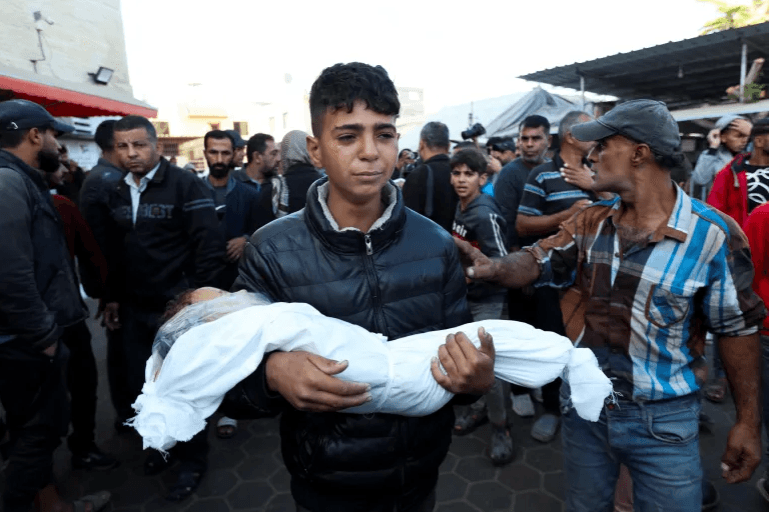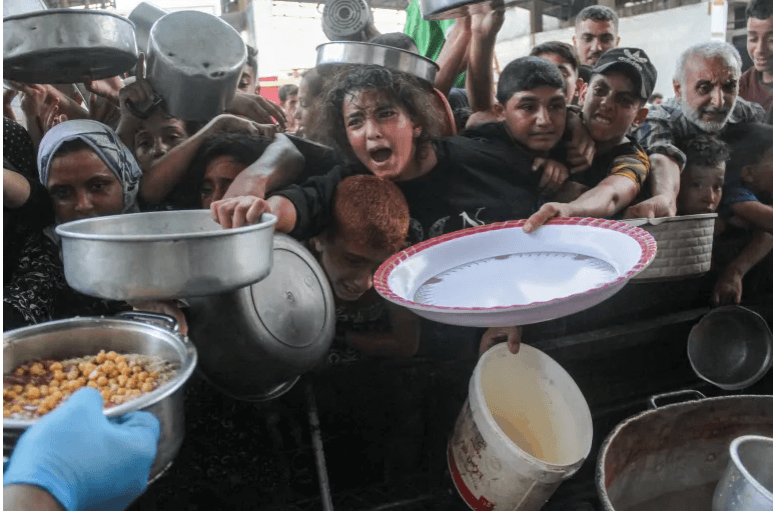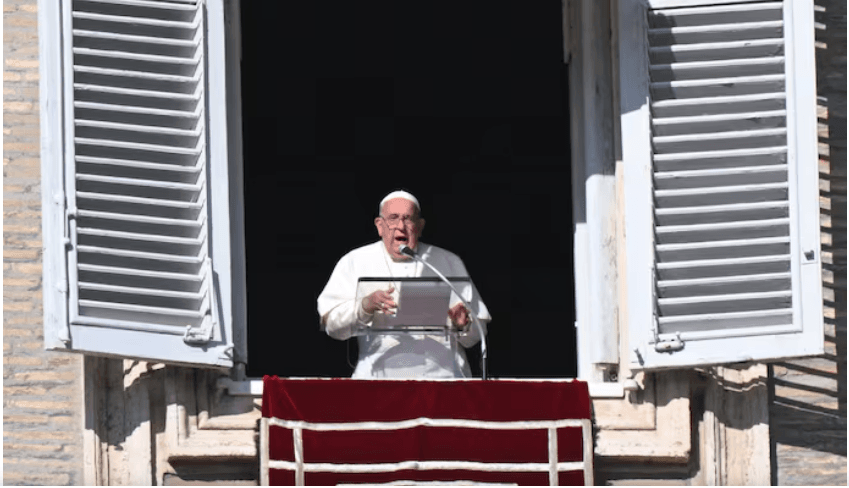
In a world plagued by persistent conflict, few voices carry the moral weight necessary to draw global attention to issues of justice and humanity. Pope Francis, the spiritual leader of the Catholic Church, has once again demonstrated his commitment to the oppressed by calling for an investigation into allegations of genocide linked to Israel’s military actions in Gaza amidst its conflict with Hamas. These statements mark a significant moment in the Vatican’s involvement in geopolitical and humanitarian issues.
Context of Violence and Suffering

The ongoing conflict between Israel and Hamas, reignited on October 7, 2023, has resulted in unprecedented human loss. According to Gaza’s health authorities, over 43,000 people have died. In Israel, Hamas’ initial attacks claimed the lives of 1,200 civilians and led to the abduction of 250 others. This violence has sparked intense global debate over human rights, the rules of warfare, and allegations of genocide.
Israel has justified its military actions as a legitimate response to Hamas’ attacks. However, data from the United Nations and humanitarian organizations paint a grim picture: the majority of victims in Gaza are reportedly women and children, highlighting the devastating toll on civilians.
A Historic Statement by Pope Francis

In his new book titled “Hope Never Disappoints: Pilgrims Toward a Better World,” Pope Francis addresses complex global issues, including the ongoing conflict in the Middle East. Published just ahead of the Jubilee Year 2025, the book contains a statement that has captured international attention:
“According to some experts, what is happening in Gaza exhibits characteristics of genocide. We must carefully investigate to determine whether it aligns with the technical definition formulated by legal experts and international bodies.”
This marks the first time Pope Francis, known for his cautious language on geopolitical matters, has openly used the term “genocide” concerning the Israeli-Palestinian conflict. His stance reflects growing Vatican concern over escalating violence in the region.
What is Genocide by pope francis?
The term “genocide” is defined by the 1948 United Nations Convention as “any act committed with intent to destroy, in whole or in part, a national, ethnic, racial, or religious group.” This includes actions such as killing members of the group, causing serious bodily or mental harm, and creating conditions intended to bring about the group’s destruction.
Allegations of genocide are grave and require thorough investigation. In Gaza’s case, these accusations stem from the mass destruction of civilian infrastructure, high civilian death tolls, and the use of blockades and bombings that disproportionately affect the population.
The pope francis Call for Justice
Pope Francis’ statement is a call to the global community to prioritize justice and accountability. By urging an investigation, the Pope emphasizes the importance of adhering to international law and ensuring the protection of innocent lives. His use of the term “genocide” aims to elevate the urgency of addressing the crisis in Gaza while urging world leaders and organizations to examine the conflict from a humanitarian perspective.
The Vatican, under Pope Francis’ leadership, has consistently championed peace and dialogue. His recent appeal highlights the Church’s moral responsibility to advocate for the oppressed and challenge actions that violate human dignity.
The Global Reaction
The Pope’s statement has sparked diverse reactions worldwide. Human rights organizations and many international observers view it as a crucial acknowledgment of the humanitarian crisis in Gaza. For decades, the region has been a focal point of conflict, and calls for accountability have often been met with political resistance.
Conversely, Israel and its supporters may see the Pope’s remarks as one-sided or misinformed. The Israeli government has maintained that its military operations are aimed at neutralizing Hamas, a group designated as a terrorist organization by many countries. However, critics argue that the scale of destruction and civilian casualties in Gaza far exceeds what is permissible under international law.
The Role of the Catholic Church in Global Conflicts
Historically, the Catholic Church has played a unique role in addressing conflicts worldwide. From promoting reconciliation in post-apartheid South Africa to mediating peace agreements in Latin America, the Church has consistently used its influence to advocate for justice and peace.
Pope Francis has carried on this tradition by addressing contemporary crises, including the Syrian civil war, the plight of refugees, and climate change. His call for an investigation into the Gaza conflict aligns with his broader vision of a world where human dignity and rights are upheld.
The Challenges of an Investigation
Conducting a credible investigation into allegations of genocide is fraught with challenges. First, access to Gaza remains severely restricted due to ongoing hostilities and the blockade imposed by Israel. International investigators would require cooperation from all parties involved to gather evidence and testimonies.
Second, political dynamics often hinder impartial investigations. Accusations of bias, geopolitical alliances, and competing narratives make it difficult to establish consensus on accountability. Despite these challenges, the Pope’s appeal underscores the moral imperative to seek truth and justice.
The Broader Implications of the Pope’s Statement
Pope Francis’ use of the term “genocide” carries significant implications. It elevates the discourse around the Gaza conflict, urging the international community to view the crisis not just as a geopolitical struggle but as a profound humanitarian tragedy. His call also places moral pressure on global leaders to act decisively in addressing the suffering of civilians.
Moreover, the Pope’s statement serves as a reminder of the broader responsibilities of religious and political leaders in times of crisis. It challenges them to prioritize humanity over partisanship and to work toward solutions that uphold the principles of justice and peace.
Conclusion
Pope Francis’ call for an investigation into allegations of genocide in Gaza is a powerful appeal to the conscience of the global community. It highlights the need for accountability, justice, and a renewed commitment to protecting innocent lives amidst the horrors of war.
As the world grapples with the complexities of the Israeli-Palestinian conflict, the Pope’s words serve as a beacon of hope for those seeking a resolution rooted in humanity and compassion. In the face of immense suffering, his message reminds us of the shared responsibility to build a world where peace and justice prevail.


